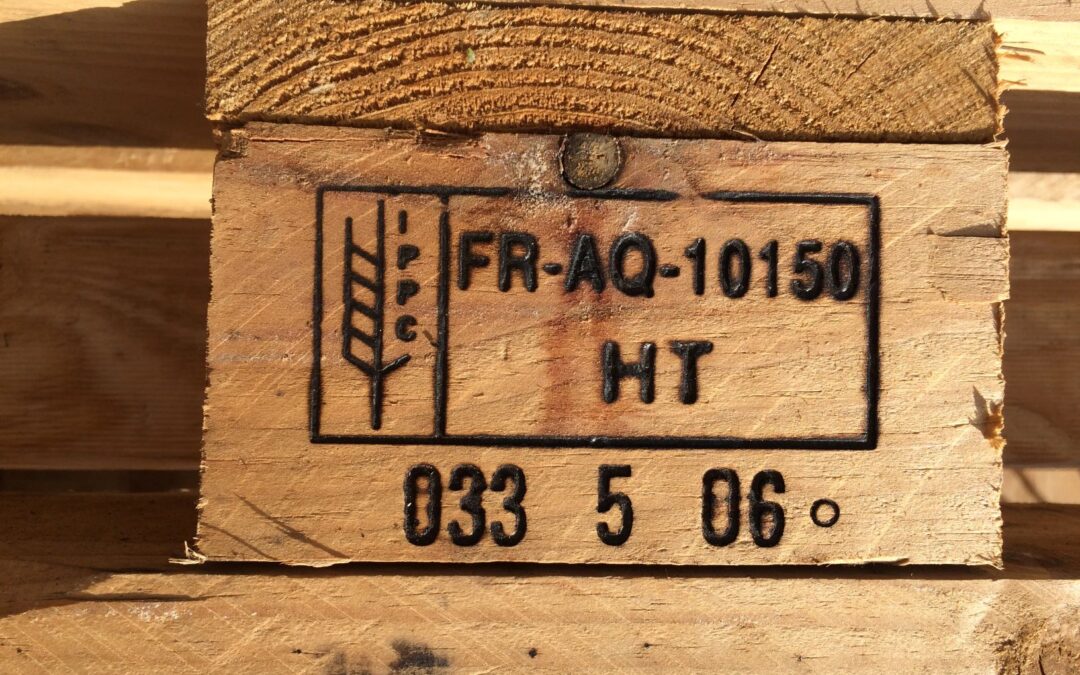Picture source: ippc.int
Wood is the safest packing material. Boxes, crates, pallets, dunnages, or drums are the most common wooden packaging used to pack the products when it is shipped internationally, especially for fragile products. However, did you know that many pests and diseases might spread through this wood packaging? How to prevent this issue?
ISPM 15 stands for the International Standards for Phytosanitary Measures No.15. Developed by the International Plant Protection Convention (IPPC), it is a set of regulations, aimed at preventing the spread of pests and diseases by wood in packaging materials used in international trade. The consequences of using non-compliant ISPM15 standards for international shipping can be severe. From not allowed to enter the country, until in extreme cases, local authorities will have the authority to destroy the packaging and the product being carried.
The regulations require that almost all of the wooden packaging material must be heat treated for 30 minutes at 56 degrees Celsius or be fumigated with Methyl Bromide. Once the wooden packaging material has been treated and the quality mark applied, it does not require any further treatment unless it is repaired or becomes re-infested.
Why ISPM 15?
Many countries were paying more attention to save their environment including from the spread of timber-based diseases and pests. As a result, ISPM 15 developed to prevent the spread of it, which could negatively affect another country’s plants or ecosystems. The ISPM 15 is not mandatory, however many of the leading countries involved with international trade have adopted it, including the United States, United Kingdom, Australia, and New Zealand.
Does every Wooden Packaging require ISPM 15?
The wooden packaging affected by ISPM 15 includes almost all kinds of wood. However, some wooden packaging materials are exempted because they are considered low risk. These includes:
- sawdust, wood wool, and wood shavings
- wood packaging manufactured with completely processed wood material
- wood packaging that is 6mm or less in thickness
- veneer peeler core
- gift boxes that have made with processed wood
- barrels that have been heat-treated which contain wine or spirits
How to ensure your wooden packaging compliance with ISPM 15?
Receiving goods in a good condition and quality without any problem is every importers’ wish. That is why you should anticipate the potential problems that might happen during the shipping time.
Conduct a pre-shipment inspection in Indonesia can be a solution. Inspection is the key element of quality control in Indonesia. This service will give you more information about your products’ and packagings’ quality from the very beginning until it will be shipped. For instance, pre-shipment inspection is really beneficial for importers to make sure everything is good before it is shipped, including the product quality, shipping marks, packing and box labeling are correct. Because this inspection is your last chance to stay on top of things.
Excellencial independent third-party inspection services in Indonesia will provide you with confidence that your products comply with both your standards and government regulations. For more information about product inspection in Indonesia, you can find it here: https://www.excellencial.com/inspections/
Contact us today to get a free quote of our inspection services in Indonesia

